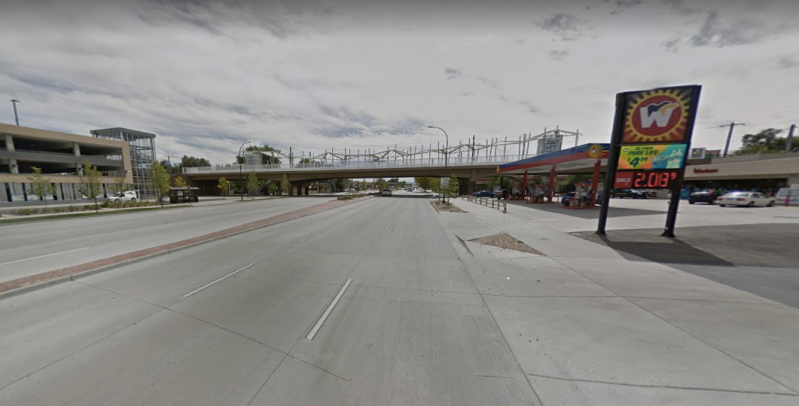Instead of Turning People Away, Suburban Denver Could Surround Rail Stations With Transit-Oriented Development

Recent news out of suburban Denver has been decidedly anti-growth. First it was Greenwood Village voters shunning compact, walkable development that would have allowed more people to live near the Orchard RTD station. This week, in a disturbing development in Jefferson County, elected officials nearly turned down $1.7 million in federal funds for affordable housing and sidewalks because of a perceived “war on the suburbs.”
After a six-hour debate Tuesday over whether Jeffco should take money from the Department of Housing and Urban Development for sidewalks, up to 500 new housing units, and more affordable homes for low-income residents and people of color, commissioners grudgingly accepted — with caveats, lest the county get too diverse and accepting of new people.
Denverite’s Andrew Kenney reports:
It was the conclusion of a debate that has been brewing for months in the halls of county government. It was, at its simplest, a fight about whether Denver’s large suburban neighbor would break away from a long-running federal effort to make housing more fair and accessible for people with disabilities, racial minorities and others.
The county’s three commissioners ultimately voted unanimously to accept the federal money, with the requirement that the county will reassess the program and potentially try to wean itself off federal support in the years ahead.
A group of conservative activists — the AFFH.net Opposition Group — has sown skepticism of the federal housing program among Denver’s outlying communities, warning of a supposed federal plan to force the creation of “low-income, racially diverse, high-density housing.” That free money isn’t so free, they argue.
Jeffco has seven RTD rail stations, and will have more once the G-Line opens. In terms of ridership, five of them rank in the bottom half when compared to other stations in the system, according to RTD documents. Three of them average fewer than 800 riders per day, including RTD’s worst-performing rail station, Red Rocks Community College, which serves a meager 399 people a day on average.
In other words, these suburban stations aren’t useful to many people. And it’s no mystery why — there aren’t many compact, walkable places around them. Do politicians see sidewalks and more homes as the enemy?
“It makes sense that we’re having a robust debate about growth in Jeffco, but it’s crazy that anyone would want to decline the HUD funding,” said Rep. Chris Kennedy, who represents Jefferson County in the General Assembly. “Our local governments depend on these funds to meet the affordable housing needs of their residents. In many parts of Jeffco, these funds have been used to plan smart growth and concentrate more units near transit or commercial areas so that we limit the number of new cars on our roads.”
These localities should be scrambling to create walkable places around transit where people can live and work, which would reduce traffic by making people less car dependent — not trying to cap growth, which, as we’ve seen in Boulder, makes cities prohibitively expensive.
More from Denverite:
Denver’s neighbors know change is coming. Often, they share an instinct to keep things the same. Golden, for example, has developed a culture that wants to stay small, according to Mayor Marjorie Sloan.
The question is whether that’s possible.
“Congestion is increased,” Sloan said, “by having people that live outside the community and drive to work.”
“Turning down the HUD funds wouldn’t stop further development in Jeffco,” Kennedy said. “It would just make all new development unaffordable for the middle class. I am thankful our commissioners recognized this need and voted to accept the funds.”
In the future, if Jeffco doesn’t want nearly $2 million for affordable housing and sidewalks, maybe the feds could send it Denver’s way.


